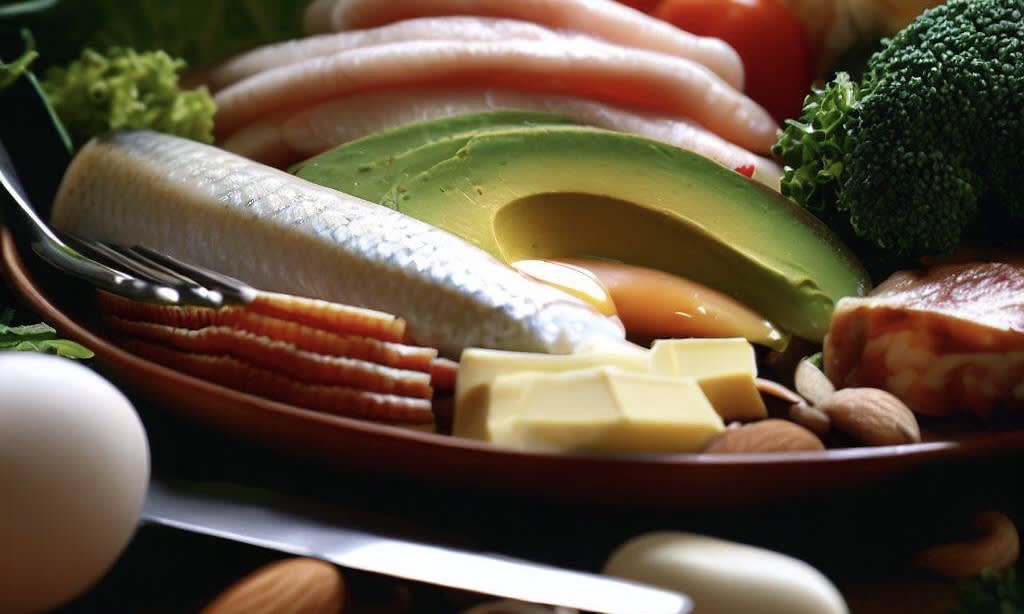The Ketogenic Diet: A Comprehensive Beginner's Guide
From Flab to Fab: How the Ketogenic Diet Transformed My Body!

In recent years, the ketogenic diet has gained significant popularity as a weight loss and health improvement strategy. With its focus on low carbohydrate intake and high fat consumption, this diet has attracted the attention of many individuals seeking to transform their bodies and improve their overall well-being. In this comprehensive beginner's guide, we will delve into the principles, benefits, potential risks, and practical tips associated with the ketogenic diet.
The ketogenic diet, often referred to as the keto diet, is a low-carbohydrate, high-fat diet that has been used for decades to treat certain medical conditions such as epilepsy. The primary principle behind this diet is to induce a state of ketosis in the body, where it becomes primarily reliant on fat for energy instead of carbohydrates. By limiting carbohydrate intake to a minimum and increasing the consumption of healthy fats, the body shifts its primary energy source from glucose to ketones, which are produced from the breakdown of fats in the liver.
One of the major benefits of the ketogenic diet is its effectiveness in weight loss. When the body enters a state of ketosis, it becomes highly efficient at burning stored fat for fuel, leading to significant weight loss over time. Additionally, the high fat and protein content of the diet helps to increase satiety, reducing cravings and promoting a feeling of fullness, which can aid in portion control and calorie restriction.
Furthermore, the ketogenic diet has shown promising results in improving various health markers. Studies have demonstrated that it can help lower blood sugar levels and improve insulin sensitivity, making it a potential therapeutic approach for individuals with type 2 diabetes or those at risk of developing it. Additionally, the diet has been found to raise levels of HDL (good) cholesterol while reducing levels of LDL (bad) cholesterol, leading to improvements in cardiovascular health.
Moreover, the ketogenic diet has been associated with increased mental clarity and cognitive function. Some researchers believe that ketones, the byproducts of fat metabolism in ketosis, provide a more stable and efficient source of energy for the brain compared to glucose. This improved energy supply to the brain may result in enhanced mental focus, concentration, and overall cognitive performance.
While the ketogenic diet offers several potential benefits, it is essential to consider the potential risks and challenges associated with its implementation. One of the primary challenges is the initial adjustment period, often referred to as the "keto flu." During this period, which can last a few days to a few weeks, individuals may experience symptoms such as fatigue, irritability, and headaches as their bodies adapt to the new energy source. It is important to stay hydrated, replenish electrolytes, and consume adequate amounts of healthy fats and proteins during this phase.
Additionally, the restriction of carbohydrates in the diet can make it difficult to meet certain nutritional requirements. Carbohydrates are the body's primary source of dietary fiber, vitamins, and minerals. Therefore, it is crucial to focus on consuming nutrient-dense, low-carbohydrate foods such as leafy greens, non-starchy vegetables, and avocados to ensure an adequate intake of essential nutrients.
Furthermore, the high fat content of the diet may raise concerns about its impact on heart health. While research suggests that the ketogenic diet can improve certain markers of cardiovascular health, it is important to choose healthy fats such as avocados, nuts, and olive oil over unhealthy trans fats and excessive saturated fats.
To successfully implement the ketogenic diet, it is important to follow some practical tips. Firstly, focus on consuming whole, unprocessed foods to ensure an adequate intake of essential nutrients. Secondly, prioritize healthy fats such as avocados, nuts, seeds, and olive oil. Thirdly, moderate protein intake to meet your individual needs, as excessive protein consumption can hinder the body's ability to enter ketosis
About the Creator
Enjoyed the story? Support the Creator.
Subscribe for free to receive all their stories in your feed. You could also pledge your support or give them a one-off tip, letting them know you appreciate their work.






Comments
There are no comments for this story
Be the first to respond and start the conversation.